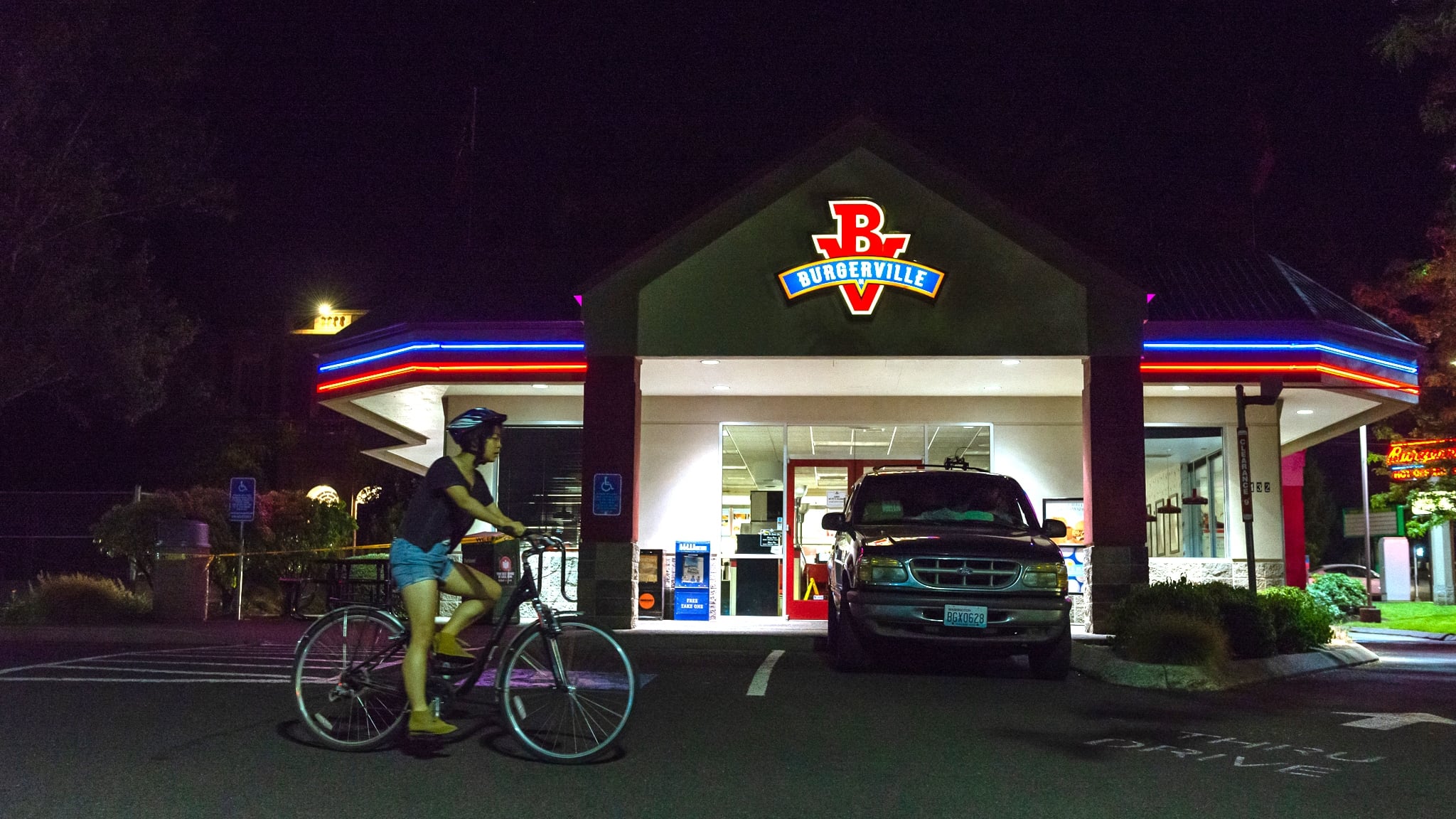Sortis Capital, a Portland investment company affiliated with the owners of Bamboo Sushi, Sizzle Pie and Water Avenue Coffee, among others, has been in negotiations to buy Burgerville, the iconic Northwest fast food chain, for $48 million, according to documents obtained by WW.
Burgerville, beloved for locally sourced items like marionberry milkshakes and Walla Walla onion rings, has 39 stores in Oregon and Southwest Washington. The company was founded in 1961 in Vancouver, Wash., by George Propstra, who died in 2004. His family still owns the chain.
“Sortis has reached an agreement to acquire Portland, OR-based Burgerville LLC,” one of the documents, dated December, says.
But the purchase hasn’t closed, according to a person familiar with the matter.
John McIsaac, a spokesman for Sortis Capital, said the company isn’t currently involved in a deal for Burgerville. He called the documents describing it “dated.” Sortis Capital founder Paul Brenneke isn’t involved, nor is Sortis Holdings, a related company, McIsaac said.
The bid, even if it’s dead, is significant because it shows that Burgerville is entertaining a sale.
“There is no signed deal,” said Clare Clancy, Burgerville’s community marketing and public relations manager, in a Monday evening email.
Sortis’ structure is complex. Sortis Capital, the company that has shown an interest in Burgerville, doesn’t control Sortis Holdings, the entity that owns the various consumer businesses and restaurants, according to company documents. The largest shareholder in Sortis Holdings is the Sortis Rescue Fund, an $11 million pot of money raised by Sortis Capital to invest in struggling chains.
A purchase, if it happened, would come at a delicate time for Brenneke and the various Sortis entities. Brenneke, originally a real estate developer, began investing during the pandemic in consumer businesses, including Bamboo Sushi, Blue Star, Water Avenue Coffee, Rudy’s Barbershops, the restaurants Ava Gene’s and Tusk, and Sizzle Pie. The restaurants operate under the umbrella of the Sustainable Restaurant Company.
But lawsuits and demands from unpaid creditors suggest a cash crunch. Sizzle Pie has missed rent payments at its Concordia location, according to a lawsuit filed by the landlord, as has See See Motor Coffee Co. on Sandy Boulevard, according to an eviction complaint.
In November, Sortis Holdings announced layoffs after a deal to purchase the Ace Hotel chain for $85 million collapsed.
A 30-page presentation on the proposed deal says Burgerville would benefit from the buyer’s expertise.
“Sustainable Restaurant Group is a trailblazing force boasting renowned establishments like Bamboo Sushi, Sizzle Pie, Mr. West, and Water Avenue Coffee, which perfectly complements Burgerville’s dedication to community engagement and authentic experiences,” the document says.
A Sortis affiliate planned to contribute 10 Sonic fast food restaurants to the deal, which would be turned into Burgervilles by the third quarter of next year, documents show. By 2028, Sortis Capital planned to have 73 Burgerville restaurants and $214 million in revenue.
Joining Brenneke in the proposed Burgerville purchase would be Joth Ricci, former chief executive at Dutch Bros, the Grants Pass, Oregon-based coffee chain, and Ed Casey, a TGI Fridays veteran and current CEO of Burgerville, who came on board in February 2022 to boost flagging sales, the presentation says. (Burgerville had sales of $92.1 million in 2022, the last year for which the preparers of the deal’s presentation had actual figures, up from $82.6 million in 2021.)
Ricci would be executive chairman at Burgerville if a deal were to go through, the presentation says. Casey would remain CEO. Brenneke would become a board member and “growth adviser.”
Some of the financing for the deal was to come from Bochi Investments LLC, a firm based in Utah and Oregon. Bochi planned to form a special purpose vehicle that would raise up to $5 million to complete the Burgerville purchase, according to a document dated Jan. 15.
The buyers planned to raise another $25 million in debt and $22 million in equity. The Propstra family was going to lend $8 million, for a total of $55 million, leaving $7 million extra beyond the $48 million purchase price. Of that, $5 million would go to Burgerville and $2 million to fees.
“The buyers of the company, who have spent more than two years courting the Propstra family, have an ambitious plan to revitalize and expand the brand,” Bochi Investments says in its memo about the deal. “For those not from the PNW, imagine if Whole Foods and McDonald’s had a baby—that would be Burgerville!”
